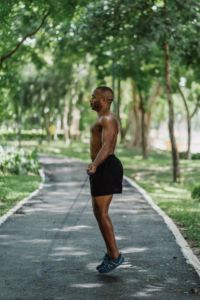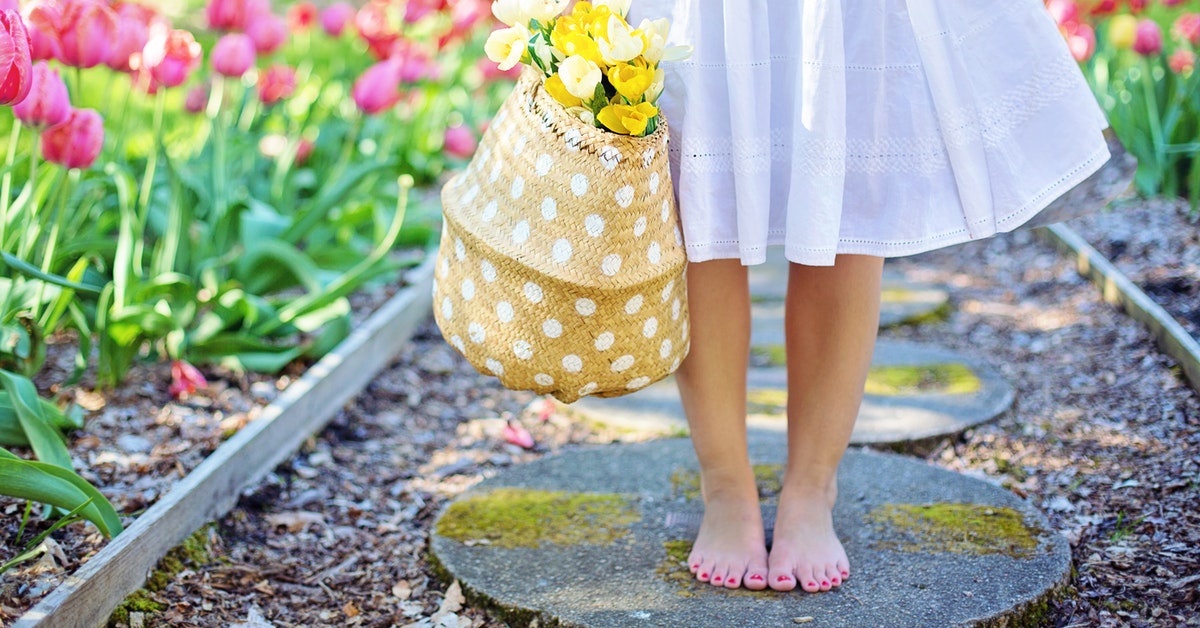March is finally here! The days are getting longer, and new life is stirring all around us. As you consider your goals for the season, words like renewal or refresh might come to mind. Our bodies are in-tune with the seasons. During the winter, we naturally have lower serotonin levels, leading to less energy and, for some, seasonal depression. When the light returns in the spring, our serotonin rises, and many people feel more energy and increased motivation. It’s easy to get too busy in the spring, so it’s essential to make time for mindfulness and other healthy habits.
Here are five ways to renew your physical and emotional health this spring.

1. Play in the Dirt
Researchers agree that gardening is good for the mind, body, and soul. Planting or tending a garden leads to feelings of purpose and achievement and can build confidence by helping you acquire new skills. The whole process of gardening is an antidote to fast-paced modern life. Nothing happens fast in a garden, but patience can be bountifully rewarded. If you’ve been glued to screens all winter, you may feel overstimulated and emotionally worn out. Gardening is grounding; it engages all the senses and provides a soothing stimulation level.
The soil itself has antidepressant properties due to the good bacteria it contains. Whether through gardening, farming, or working with horses, being exposed to dirt can boost your immune system. Children who spend more time playing outdoors or are exposed to horses and other livestock tend to be less prone to autoimmune diseases. So go ahead and get dirt under your fingernails; your body will thank you.

2. Greet the Sun
The sun gives energy to the whole world, and human bodies need sunlight to create Vitamin D, regulate circadian rhythms, and balance brain chemicals. Sun protection is important in places with particularly intense sunlight or when spending long periods under the sun. It’s also important to let the sun shine on unprotected skin sometimes. Spring is a great time to get the sunlight you need without worrying too much about damaging your skin.
Sunlight causes vitamin D synthesis to occur in the human body. Many people in the northern hemisphere are deficient in vitamin D. This puts them at increased risk of lowered immunity, mental health problems, and bone loss. Doctors recommend 10 -30 minutes of midday sun exposure on unprotected skin several times per week to meet your vitamin D needs. The amount of time in the sun you need varies depending on how much melanin you have in your skin. People with lighter skin tones need less and those with darker complexions will need more exposure. The amount of sun needed to achieve healthy vitamin D levels will not put you at risk for skin cancer, so roll up your sleeves and enjoy it.
Sleep disorders and wacky circadian rhythms plague many people. Changing time from or to daylight savings can aggravate sleep problems. If you have trouble sleeping, try exposing yourself to bright morning sunlight and dusk lighting. These two times of day help train your brain when it should be awake and when it should be asleep. It’s also a good idea to dim the lights in your house in the evening or wear amber-colored glasses. This keeps bright artificial light from energizing your brain close to bedtime.

3. Tackle Your To-Do List Gradually
With spring comes spring cleaning, tax time, and yard work. It’s nice to put springtime energy to good use and be more productive, but being over-busy is stressful in any season. Try breaking your to-do list up into prioritized sections.
Spring cleaning is a double-edged sword, on the one hand, it might make you feel refreshed and accomplished, but it may also keep you inside when you’d rather be outside. It’s okay to schedule your chores around the weather. Choose a rainy day to scrub your kitchen, and then get outside on warm days.
Remember that spring is three months long, so don’t feel like you have to get all your spring to-do’s done in March. Many people find it helpful to plan out their season in advance, so they know that everything will get done and when they will do it. Having tasks on a calendar can make you feel more relaxed during your leisure time.

4. Consider Changing Up Your Workout
Maybe your workout this winter has mainly involved pushing buttons on a remote, or maybe you’ve been going to the gym faithfully. Either way, spring is an excellent time to reevaluate your fitness routine. One of the challenges in staying consistent with a workout schedule is boredom. Changing your activities with the seasons can keep you engaged and result in you being more active. Try signing up for tennis classes, swimming laps, or jogging outside instead of on the treadmill.
If you are just now getting off the couch for the first time in months, start slow by walking around your neighborhood or local park. And yes, spring chores and yard work do count as physical activity. Outdoor yoga is a great way to get your wintertime kinks worked out. Don’t make the mistake of exercising with stiff, unwarmed muscles. Always stretch and spend at least five minutes warming up before working out.

5. Get a Change of Scenery
Now that most of the country is getting back to pre-covid life (almost), it’s a great time to go out and travel or try new activities. Depending on where you live, you may have spent most of your winter trapped indoors by bad weather and slick roads. Getting out of that rut may make you feel less anxious and more satisfied with life.
There are many well-researched benefits of trying new things. New experiences stimulate our creativity and improve brain function. It’s normal to feel a bit anxious about going somewhere you’ve never been or exploring a new hobby, but pushing through that feeling can lead to less anxiety in the future. People who have new experiences more often tend to feel less anxious, partly because they learn that they can handle themselves in various situations. New experiences can improve your knowledge of yourself and keep you from feeling “stuck” in your life.
Experiences that help you engage with others or learn about a different culture are especially beneficial for emotional and social well-being.
Holistic Healthcare and Pain Relief in Tennessee
Are aches and pains keeping you from enjoying the season or jumping back into a favorite sport or hobby? At Stanlick Chiropractic, we use non-invasive treatments to safely and effectively heal injuries and reduce pain.
Take advantage of our March special and get your initial appointment, health examination, and your first treatment for only $39.

